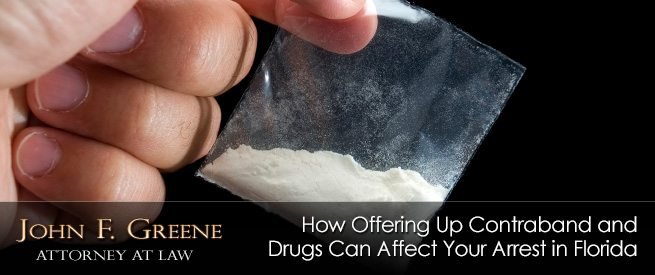
Recently, a Northwest Florida man was told to stay off of a motel’s property, and police were called on a trespassing complaint. Once the police located the man, they asked the man if he “had anything on his person that might get him into trouble.” The man complied with the request, offering up a plastic bag with two partially smoked joints.
At this point, the officers searched the man and found two white pills that were in a cigar wrapper. These pills were Furosemide, a prescription drug for which the man had no prescription. As a result, he ended up being charged for possessing a New Legend drug without a prescription.
This incident serves as a classic reminder of the fact that individuals must know their legal rights during police interactions, which often means that you do not have to comply with police to the extent this North Florida man chose to comply.
Florida v. Bostick: A Seminal Law for Florida Search and Seizure
Nearly two and a half decades ago, a Florida citizen’s legal case clearly demonstrated the deference police are afforded when using arguably manipulative tactics.
In the 1991 case of Florida v. Bostick, undercover police officers boarded a Greyhound bus when the bus had a stopover in Ft. Lauderdale. Upon boarding, the undercover narcotics officer performed an inspection of the bus. Crucially, since the inspection was routine, the officers had no “reasonable suspicion” of anyone on the bus. Without reasonable suspicion, a police officer typically does not have rights to search an individual without their consent.
However, Bostick consented to the police officers and their request to search his luggage — this request occurred after he complied with a request to see his bus ticket and identification that demonstrated there was nothing unusual about Mr. Bostick. After searching his luggage, the officers found cocaine. Subsequently, Bostick was convicted for possessing cocaine, but he appealed claiming that, since he could not leave the bus, the police incident was an unlawful seizure.
Florida’s Supreme Court upheld the conviction of Bostick since, according to the Court, interacting with citizens in the manner described was not an unlawful seizure under the Fourth Amendment. The Court continued its analysis by arguing that police never stated to Bostick he was not free to leave or reject the search request, and as a result, there was no Fourth Amendment violation.
His consent, then, was considered valid as well since there was no constitutional violation in the first place. In effect, Mr. Bostick’s ignorance of the law was used against him. This legal reasoning provides police with broad power that some may argue is manipulative. Still, it reinforces the notion that citizens like Mr. Bostick and the recent North Florida man arrested must know their legal rights during a police encounter.
Key Takeaways Regarding Your Legal Rights During a Florida Police Search or Encounter
The examples provided show that citizens in Florida will often give police officers more authority than they are legally afforded. And, in the Bostick case, this ignorance on the part of citizens is often used against them in Florida courts.
Keep these key principles in mind whenever you encounter a police investigation or a potential search:
- Police officers must have reasonable suspicion to detain you
- In the event that you are detained, police are entitled to no information other than your identification
- A refusal to be searched cannot be used as legal evidence that you were involved in a crime
- Additionally, you are not allowed to be detained on the basis of a search refusal
- A search is not even permissible without probable cause or your consent, and you have the right to refuse search requests
- Police may try to manipulate you into thinking you are not permitted to leave. If you believe this is happening to you, always ask whether you are free to leave.
In short, in most cases, it pays to be respectful to police officers, but you should not grant searches or detainment that is not legally warranted. If you have been wrongfully detained or searched, contact Destin Defense Attorney John F. Greene to receive the legal representation you need.
Call 850-424-6833 or schedule a consultation online. Attorney Greene represents drug case defendants in Okaloosa, Walton, and Bay Counties in Florida.









